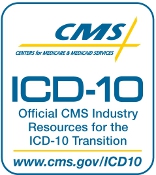
MGMA’s letter strongly urged HHS and Medicare to conduct end-to-end testing with external trading partners including physician practices, in contrast to HHS’ recent announcement that it would not do so. The association warned of “significant cash flow disruption for physicians and their practices, and serious access to care issues for Medicare patients” if testing is not done ahead of time. MGMA has taken a survey of its members regarding their readiness for ICD-10, and approximately half of the respondents noted that their software vendor had not notified them regarding when their practice management system would be updated to work with the new code set; nearly the same percentage had not heard from their vendor about when their electronic medical records system would be updated. Medisoft and Lytec are among the systems being updated with ICD-10 readiness.
The survey results also showed that most respondents had not completed, or even begun, internal testing with their vendors, while slightly more reported that external testing with their clearinghouses had been started or completed. In addition to testing the information systems, however, medical coders will need to learn how to work with ICD-10 codes to bill correctly. While this may seem daunting, CMS has described the new set as being like a phone book, where coders don’t need to memorize everything but rather need to learn how to quickly find the code they require. Practices currently use only a small subset of the ICD-9 codes, and this will be the case for ICD-10 as well.
The time to start preparing for ICD-10 is now. Hoping for another delay, or considering the implementation to be impossible, will only make it that much harder when the time comes. Implementing the new code set is an achievable and a mandatory goal, and healthcare IT, insurance carriers, clearinghouses, healthcare providers and organizations, and HHS all need to be focused on realizing it together.

